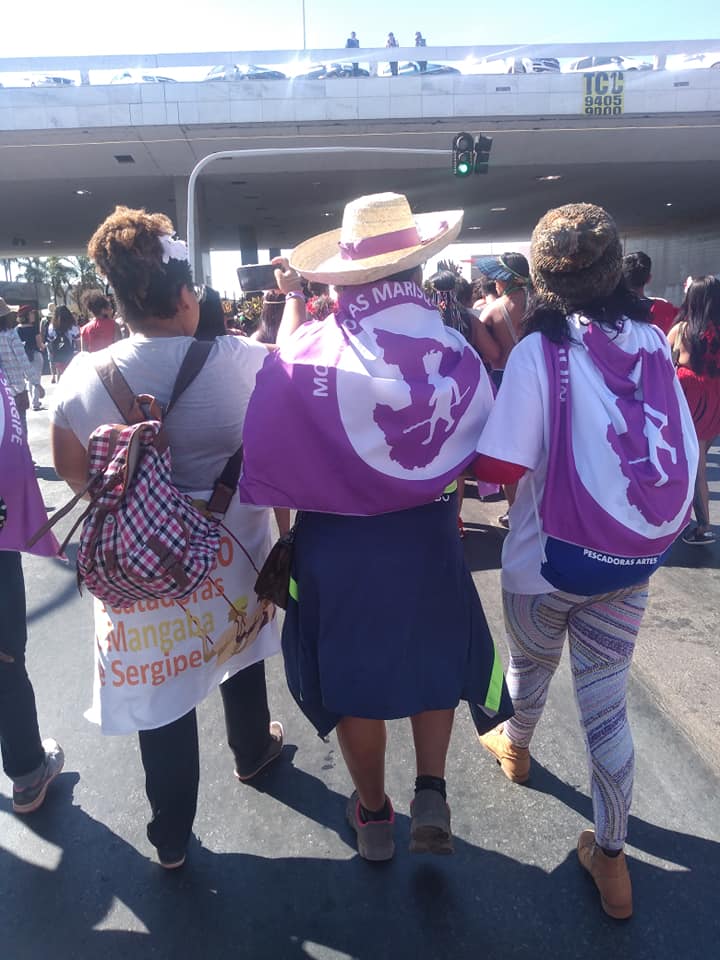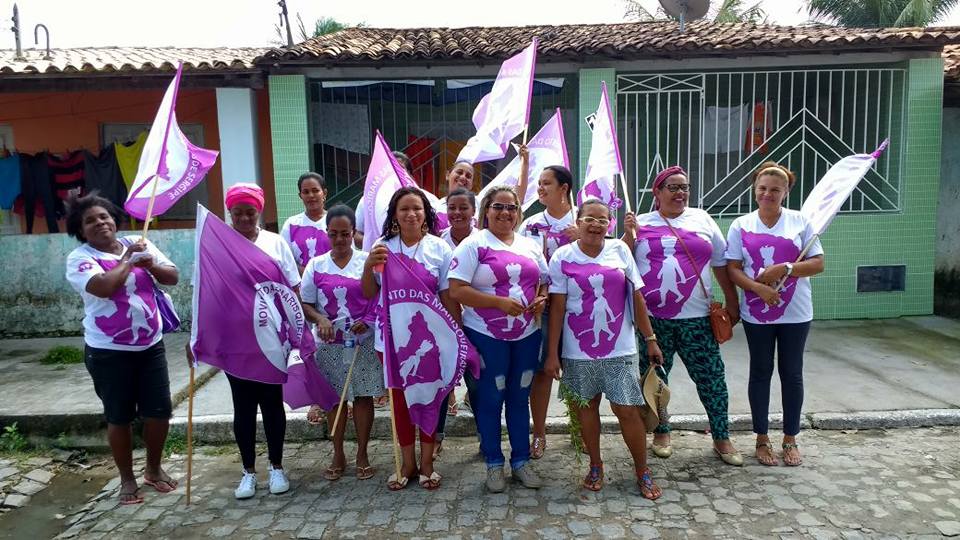In Sergipe, the organization of shellfish gatherers requires care and values the category
The organization of the group came to make positive and regulate the work of shellfish gatherers. Standardize sales values, organize working relationships with people from other groups and demand institutional advances.


Credit: Personal Collection
By: Eduarda Nunes / Lupa do Bem – Favela em Pauta
Seafood is food for those who like the beach. Shrimp, oyster and crab are some of the crustaceans that accompany fish in the parish’s preference. What not everyone knows is that picking each one of them is a job substantially done by women, often devalued and neglected.
In Sergipe, the so-called shellfish gatherers have been organizing for 6 years to change this situation. “Our work is not recognized, even though we are basic support for fishing in the state”, comments Arlene Costa, a 39-year-old shellfish gatherer and member of the Sergipe Seafood Workers Movement (MMS).

According to her, the work done by these women becomes greater than that of the fishermen, both because of the way each shellfish demands that it be collected and also because of the accumulation of this work with the domestics.
“We take care of the house, take care of the children, take them to school, go to the tide, parade, pack and the men don’t. They go to the tide, fish, come back.”
The organisation of the group came to make positive and regulate the work of shellfish gatherers. Standardize sales values, organize working relationships with people from other groups and demand institutional advances for the entire category.


“The money changers arrived, they bought goods at R$3, R$5, the way they wanted. We invited them to talk, learn to value their own work, sell fish at a fair price for them too”, comments Arlene.
The most recent claim is the elaboration of specific health care protocols for fisherwomen and fishermen throughout the state of Sergipe. The insalubrity of the work they perform and the limited availability of time to carry out consultations and exams are some of the justifications used. Arlene is confident that this will be another achievement for the category.
Shellfish gatherers and other water workers have guidance and support from the Movement of Fishermen and Artisanal Fishermen (MPP) for their actions. It is in this articulation that achievements such as the recognition of shellfish gatherers as a category.


From this, it was possible, for example, to have access to closed-season insurance, the assistance offered during the reproduction period in mangroves and rivers, with the protocol for requesting the registration of the General Fisheries Registry (RGP).
Oil leftovers in the northeast
When oil, of unknown origin until today, took over the northeast coast, just over 2 years ago, all the beaches of Sergipe were affected. The fishermen of the smallest state in the region had their jobs and their lives completely crossed by the spots that affected their fish. At the time, they wrote and published a letter demanding action from municipal, state and federal governments.
The days haven’t been better: when they were fixing the oil, the pandemic came. Oil-contaminated fish caused a decrease in fish consumption and left the population that consumes fish vulnerable and on alert about diseases resulting from spillage in the seas, mangroves and rivers. With the pandemic, there was the closing of fairs and regulation of trips to the tides.


Recently, the groups wrote another joint letter to expose the situation of vulnerability of traditional communities in the region.
The fishermen and shellfish gatherers of Sergipe are preparing to be present at Grito da Pesca 2021, which takes place in November, in Brasília (DF), and brings together demands from fishing communities across the country.


